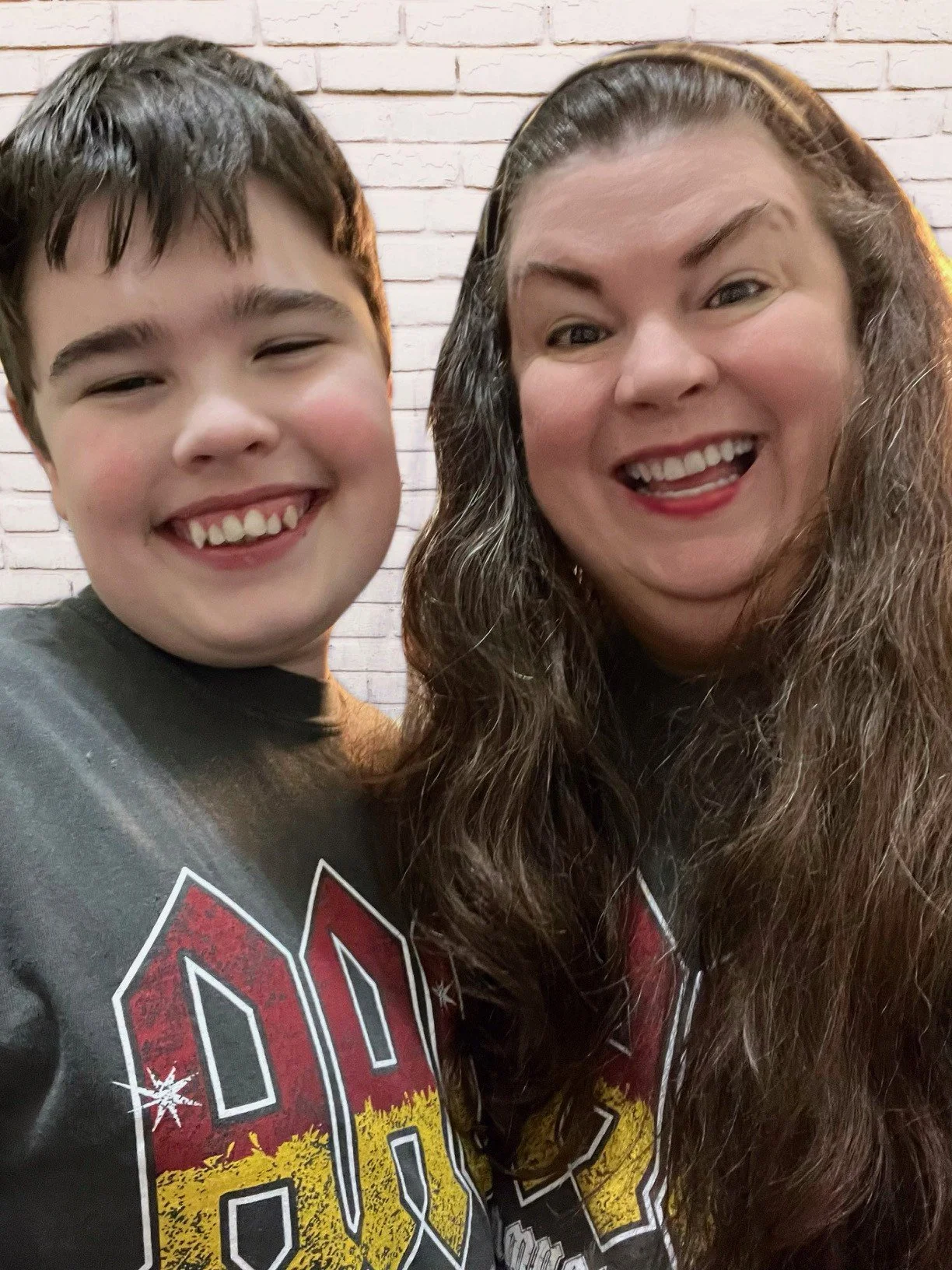By Kate Coogan, OTS
Illinois LEND Program Trainee, 2025-26
Role of Museums in Communities
Museums serve their communities as essential caretakers of history, culture, and science. Museums and cultural institutions provide visitors with opportunities for learning and engagement, enabling them to connect with peers, family members, and the broader community. Historically, museums were designed as institutions for the elite, gatekeeping important information and learning opportunities from marginalized communities. Fortunately, over the past few decades, museums have undergone a significant cultural shift, welcoming a broader audience through a range of accessibility and outreach efforts.
Museums Should Accommodate All Visitors
Accessibility in museums can be defined in various ways, including but not limited to accessibility for people with mobility differences, deaf and blind audiences, multilingual visitors, groups with varying age ranges and learning styles, and individuals with intellectual and developmental disabilities. Museums can also increase their accessibility by enhancing the diversity in exhibitions to reflect the experiences of people from diverse racial, cultural, and socioeconomic backgrounds. Some of these accessibility efforts—such as ramps and elevators for wheelchair users—have been ongoing for decades. Other efforts are relatively new to museum spaces, such as the use of QR codes on wall text that provide text and audio guides in multiple languages. One audience that I believe is still neglected by many museums and cultural spaces is people with intellectual and developmental disabilities, especially autistic people and others who have sensory processing differences.
Needs of Visitors with Sensory Processing Differences
Individuals with sensory processing differences—such as those with autism, ADHD, anxiety, traumatic brain injuries, PTSD, dementia, and more—can easily become overwhelmed by their environment. This is especially true in unfamiliar spaces and environments that are exceptionally crowded, loud, and/or brightly lit. Sometimes these overwhelming emotions can cause outbursts such as vocal stimulation or a person’s need to move their body.
There are several steps that cultural institutions can take to support individuals with autism and other sensory processing differences. Museums can provide opportunities for first-time visitors to familiarize themselves with this new environment by offering social stories, which are stories often accompanied by photographs that explain what to expect when visiting a new place. Individuals with sensory processing differences can also benefit from sensory kits, which some museums offer for visitors to check out. Sensory kits can include sunglasses, objects for tactile exploration, noise-canceling headphones or earbuds, weighted lap or shoulder blankets, and visual aids such as verbal cue cards. Access to a calm space is also an essential accommodation for museum visitors who have sensory processing differences.
Museums that are Setting the Standard
Many museums offer maps to indicate quieter areas of their facilities, but some museums have taken it a step further. The National Gallery Singapore opened a Calm Room in June 2022, a soothing space that offers comfortable seating, dimmable lights, calming music, and tactile elements, including weighted blankets. The Museo delle Scienze, a science museum in Trento, Italy, features a Sensory Room for decompression, offering sensory-friendly lighting, colors, sounds, music, and aromas to promote relaxation and calmness.
The Chicago area boasts several exemplary museums for visitors with sensory processing differences. Shedd Aquarium’s program Calm Waters provides a comfortable atmosphere for guests with disabilities and Veterans to visit. Other Chicago-area institutions that offer events geared explicitly toward autistic individuals include the Kohl Children’s Museum and the Griffin Museum of Science and Industry. Shedd Aquarium also offers a Quiet Room and provides a sensory-friendly app to enhance accessibility for individuals with autism and other sensory needs. The Field Museum of Natural History provides accommodations for visitors with autism and other disabilities, including sensory bags that can be checked out and a complimentary mobile app, the Field for All, which helps visitors plan a sensory-friendly visit to the museum. The Brookfield Zoo offers a sensory room and provides an Accessibility Guide for visitors with various disabilities, including those with autism. Finally, the Art Institute of Chicago provides sensory-friendly maps, which include areas with reduced sensory stimulation and designated spaces where visitors can interact with tactile exhibits.
Each of the museums mentioned above has an “Accessibility” page on its website that outlines its offerings, including pertinent information such as parking, public transportation, guidelines around service animals, and sensory-friendly accommodations.
Advice for Museums That Want to Do Better
Give a voice to marginalized communities! Create a focus group to assess the current accessibility offerings of your museum. This working group should include individuals from the local disability community, such as therapists, teachers, and—most importantly—self-advocates and family advocates.
Look to the experts! The International Board of Credentialing and Continuing Education Standards (IBCCES) offers certification programs for organizations committed to being inclusive for neurodiverse audiences, including specialized programs tailored for museums, science centers, zoos, and aquariums. KultureCity is another organization that partners with cultural institutions to support disabled guests, including two of the organizations mentioned above.
Get everyone involved! Unfortunately, many people are reluctant to tackle accessibility because they feel that it’s “not their job.” In fact, accessibility in museums and cultural institutions needs to be an organization-wide effort, involving staff from various departments, including operations, education, exhibitions/collections, facilities, guest relations, and finance, to name a few. If you’re passionate about inclusion and accessibility, speak up—you might be the only one who is aware of and committed to this critical issue. It may be up to you to initiate the process at your institution, so don’t let the opportunity pass you by!
References
Autism certification for Travel & Leisure- attractions, destinations & agents. IBCCES. (2025, July 2). https://ibcces.org/travel-leisure/
KultureCity. (n.d.). https://www.kulturecity.org/
Lisney, E., Bowen, J. P., Hearn, K., & Zedda, M. (2013). Museums and technology: being inclusive helps accessibility for all. Curator: The Museum Journal, 56(3), 295-389. https://doi.org/10.1111%2Fcura.12034
Ruiz, B., Pajares, J. L., Utray, F., & Moreno, L. (2011). Design for all in multimedia guides for museums. Computers in Human Behavior, 27(4), 1408-1415. https://10.1016/j.chb.2010.07.044
Teng, A. (2025). Developing the gallery calm room: a journey of creating an accessible space for inclusion and well-being. In A. F. Eardley & V. E. Jones (Eds.), The Museum Accessibility Spectrum: Re-imagining Access and Inclusion. (1st ed., pp. 47-61). Taylor & Francis Group.
Trainer, L., Pressman, H., Schulz, D., Braden, C., Martin, C., Kennedy, L., & Carr, A. (2022, Oct 21). Museum Accessibility: An Art and a Science. American Alliance of Museums. https://www.aam-us.org/2022/10/21/museum-accessibility-an-art-and-a-science/











